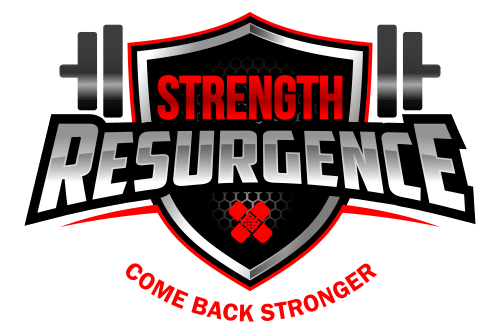Not all PT schools require an interview, but many do. And for many schools, an interview is the only chance that you’ll have to show a school that you’re more than just an application number on a piece of paper.
An interview is your chance to show what is unique about you and to verbally and non-verbally communicate why you are a good fit for the institution and that you will no doubt be successful within their program.
To have a successful interview with any PT school, you need to learn all that you can about the institution, be prepared for typical interview questions, dress professionally, know your strengths & weaknesses all while showing respect for your fellow applicants whom you’re up against.
Some applicants may have a lot of interview experience due to years of work experience outside of school. Others may be interviewing straight out of their undergraduate studies and may not have much (or any) interview experience. Schools see both ends of the spectrum and everything in between when it comes to the candidates they interview.
While some of the tips below may seem obvious or straightforward, keep in mind that I did my fair share of PT interviews as a candidate student. These are some common threads that tend to creep up in some way or form in interviews and they can be a great way to show your interviewers or panel that you’re coming prepared because you mean business.
ARTICLE OVERVIEW (Quick Links)
Click/tap on any of the following tips to instantly jump to that section of the article!
Tip 1: Learn all about the school
Tip 2: Understand and be prepared for typical interview questions
Tip 3: Dress the part (it shows attention to detail among other things)
Tip 4: Be acutely aware of your strengths and weaknesses
Tip 5: Show respect for your competition
Keep reading for elaboration and personal insight on these tips!
PRO TIP: You need to know what the school wants to see in the interview
Before we dive into the actual tips, it’s important for you to know what these schools are ultimately looking for. You need to know this because it will help you shift your mindset around how to prepare and ultimately present yourself and shape your responses for questions they ask you. If you know what they’re looking for, you can hone in on presenting yourself as the individual that they’re looking for.
In other words: You can’t win a game you don’t know how to play.
The institution wants to know that you will be successful in the program; they want to know that the students they bring into the program will be able to handle the material and be able to successfully pass the board exam(s) for licensure. This is key for them since they have to report graduation rates and pass rates for board exam(s). It won’t look good for the institution to have low graduation and passing rates.
If you’ve been notified that a PT school you’ve applied to has requested an interview, take some time to celebrate, and then get busy doing all you can to prepare for the interview.
Tip 1: Learn all about the school you’re interviewing for

No one steps into the ring without studying their opponent. The more your study who you’re up against, the better off you’ll be.
Schools are kind of like siblings — they can all be incredibly similar from one to the other and yet vastly different from one to the next as well. In the grand scheme, they all want more or less the same sort of things (the best students, a prestigious reputation, etc.) but how they oftentimes go about pursuing these things can be quite different from one school to the next.
Schools have different ways in which they pursue their values, placing different emphasis on social factors such as interacting with the community, advancing education, scientific academia, etc.
What this means for YOU is that it would be prudent on your part to research the particular nuances that make the school you’ll be interviewing unique from other schools. When it comes time to answer interview questions and leave an impression on the faculty or committee, showing them that you’ve done your research and have been keen on getting to know details of their institution will provide them with a sense of attention to detail on your part.
Schools have different ways in which they pursue their values and place different emphasis on social factors, such as interacting with the community, advancing education, scientific academia, etc.
-Strength Resurgence
It’s this attention to detail that can be like icing on the cake; while it’s certainly not make-or-break material, it is that nice little touch that really completes the package that you’re selling them.
Basically, you’re kind of tickling their brains by giving them responses that let them know that they’re not just another school you’re doing an interview with. When your answers and responses are calibrated to fall in line with as much of the school’s identity as possible, you’re essentially letting them know that you are not only capable of proper planning by thinking ahead, but that you also are someone who is willing to be thorough and go above the bare minimum requirements in your pursuits.
If they see this in you, and your GPA is competitive, they are likely to realize that they are staring at a student who won’t have problems with the curricula or the national board exam.
The key is in the delivery. You don’t want to directly inform them of how hard you’ve worked at learning about the institution and why you want to be a part of it. Rather, you indirectly drop pieces of information into your responses (and even questions) at appropriate times in the interview.
Tip 2: Understand and be prepared for typical interview questions
Continuing along a similar line to the first point, you also would be wise to study up on typical interview questions that are commonly asked for PT students. Of course, it’s different for every school, but common questions are still common.
And really, it’s more about being prepared for the themes of questions rather than the individual questions they’re likely to ask you.
A bit of time spent on the good ol’ Google can help you read up on common interview questions you’re likely to come up against. There’s no need (or point) on trying to memorize them, but rather just to get a feel of things as well as general responses that could fit across a number of questions.
It’s always fine to take a second to gather your thoughts after being asked a question in an interview, but doesn’t look great when you can’t give an appropriate response and take a lot of time to try and then verbally fumble and spit out the first thing that comes to mind.
Some general questions to be prepared for:
- Why do you want to be a PT? (have a well thought-out, authentic answer for this!)
- What makes you stand out from the competition?
- PT school is demanding, how are you prepared to stay on top of it?
- What are some of your strengths and weaknesses? (See tip 4)
Tip 3: Dress the Part

A non-negotiable here. Formal or informal interview, you’ll need to be dressing up and looking your absolute best. You mean business when it comes to getting into (and crushing) PT school, and your outward appearance needs to reflect that.
Guys: Full suit and tie. If you don’t have one, find one to borrow.
Girls: The equivalent to a guy in a suit and tie (i.e. the female equivalent attire)
Professional attire not your strong point? Take some time well in advance of your interview to seek insight or advice from individuals you trust, such as other PT students, friends or colleagues who dress in business attire on a regular basis, etc.
The added benefit to dressing up and looking sharp is that it tends to help people feel “sharp” or psychologically confident. And when it comes to an interview that you may be a bit nervous about, that added confidence can really go a long way!
Much of your days in the PT program may be spent in sweats and T-shirts, but this is definitely not the case for not any interviews, no matter how casual or informal or short they may be. This should all go without saying, but just in case, now you know.
Tip 4: Know your strengths and weaknesses

We’ve all got them. Admitting this not only makes you appear smarter and more professional but also shows that you have awareness as to who you are. The key is to always follow up by mentioning your known weaknesses with current interventions that you’re employing in order to eliminate them. This shows that you’re an individual who is serious about becoming the best possible version of themselves they can be. Interviewers and panels love to see this.
Anyone interviewing you knows that every human has weaknesses. What they want to see is if you’ve given thought as to what they may be. It’s never a good sign to them when you are unaware of or haven’t given any thought as to what your weaknesses are.
And, for you, since you’ll now be aware of your weaknesses, you can take some time to learn to discuss them before heading to the interview. Your interviewers will expect any committed student or professional to have identified and implemented personal strategies to remediate and correct those deficiencies.
If you’re able to do this, you’re essentially informing your interviewer/panel that you’re not only a smart individual but also that you truly mean business when it comes to being a successful student and future practitioner. Identifying and working on weaknesses is a critical thing to do in life for anyone who wants to continue to become a better clinician or better version of themselves.
An example within your interview would be that you’re asked what you feel to be a professional weakness of yours. And without missing much of a beat, you mention that conflict resolution can be a challenge for you, but then you quickly follow that statement up with “…however, I’ve really learned about why I struggle with it and ways to overcome it through the latest book I’ve been reading, which is …”
Just make sure that you’re being truthful in the ways that you’ve been addressing your weaknesses.
I just used the example of conflict resolution since it’s been a weakness of mine in the past, haha.
Tip 5: Show respect for yourself and your competition
It’s highly likely that you may be asked why your school should select you over other applicants, or what makes you different from others who are actively interviewing as well. I think I was asked this question for every interview I sat in.
This is a question you should definitely have an answer to. After all, if you really are unique and a cut above the rest (which is exactly what the school is looking for), then they’re expecting that it should be easy for you to point out why that is.
While you need to sell yourself on being worthy of acceptance into the program, down-talking your competition is NOT the way to do it.
You need to understand that the school you’re interviewing with has pooled some seriously smart and seriously talented candidate students to be interviewed alongside you.
The school knows this, and they won’t be impressed if you minimize the talent they’re interested in. If you do this, you’re indirectly telling the school that 1) You’re arrogant and 2) that they don’t know how to select good candidates since you’re by far superior to all the others and that the school has selected a bunch of dummies aside from you.
But you have to sell yourself, right? So what do you do?
Start by acknowledging that the school has selected the best of the best for interviews. Give credit and respect for your competition. This not only makes you appear aware of the situation (and thus very smart and keen), but it shows the school that you’re a humble individual who also respects the school’s ability to identify talent.
After you’ve shown respect to the school and your competition, you NOW (and only after showing respect for others) do you show respect for yourself (i.e. sell yourself).
Concluding remarks
If you’ve been notified that a school is requesting an interview, I hope you’re pumped because making the short-list is something to be excited about. So, take a bit of time to relish in it, but then know that there’s still some work to be done.
Take the tips within this post and begin to ask yourself how you can make the most of them. As well, know that there are still plenty of other great steps you can take to help improve your chances to stand out a bit more from the rest of the crowd and receive an acceptance letter from the institution. The tips in this post are just the tip of the iceberg.
Above all else, when the time comes for you to step foot into the actual interview, take a deep breath and remind yourself that you have greatness within you. If you feel like PT is truly a calling given within you; if you feel like this is what you were meant to do, then remind yourself of that very fact as you walk through the door.
…Because if you truly believe that, I believe that it will be evident to those who interview you — they will know it and they won’t forget it.

Hi! I’m Jim Wittstrom, PT, DPT, CSCS, Pn1.
I am a physical therapist who is passionate about all things pertaining to strength & conditioning, human movement, injury prevention and rehabilitation. I created StrengthResurgence.com in order to help others become stronger and healthier. I also love helping aspiring students and therapists fulfill their dreams of becoming successful in school and within their clinical PT practice. Thanks for checking out my site!

